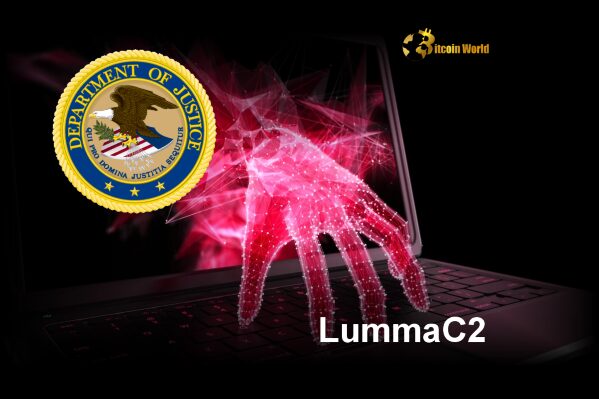BitcoinWorld

Crucial US House Crypto Bills Set for Pivotal July Vote
The cryptocurrency world is on high alert as the U.S. House of Representatives prepares for a series of pivotal votes on significant crypto bills. This legislative push could reshape the regulatory landscape for digital assets in America, impacting everything from how tokens are classified to the very future of central bank digital currencies. Are we on the cusp of clarity or complexity?
What’s Happening with US House Crypto Legislation?
According to Eleanor Terrett, host of Crypto in America, U.S. House Majority Leader Steve Scalise has scheduled a critical July 15 vote. This procedural vote aims to advance three major pieces of cryptocurrency legislation to the House floor, with final votes potentially taking place as early as July 16 or 17. This swift progression signals a serious intent from lawmakers to address the burgeoning digital asset space.
The bills in question are:
- The CLARITY Act: Focused on establishing a clear market structure for digital assets.
- The GENIUS Act: Aimed at creating a regulatory framework for stablecoins.
- The Anti-CBDC Surveillance State Act: Proposing a ban on a U.S. central bank digital currency (CBDC).
These legislative efforts represent a significant moment for the industry, as they could provide much-needed regulatory certainty or, conversely, impose restrictive measures. The outcome will undoubtedly influence the trajectory of innovation and investment within the United States’ crypto ecosystem.
Decoding the CLARITY Act: Defining the Digital Asset Market
One of the most anticipated pieces of legislation is the CLARITY Act. Its primary goal is to provide a definitive framework for the classification and regulation of digital assets. For years, the crypto industry has grappled with a lack of clear guidelines, leading to uncertainty over whether a digital asset should be considered a security, a commodity, or something else entirely. This ambiguity has stifled innovation and made it challenging for businesses to operate within legal boundaries.
The CLARITY Act seeks to:
- Establish clear definitions for various types of digital assets.
- Determine which regulatory bodies (e.g., SEC, CFTC) have jurisdiction over specific assets.
- Create a pathway for projects to comply with regulations without stifling technological advancement.
If passed, this act could bring a new era of predictability to the digital asset market, potentially attracting more institutional investment and fostering greater mainstream adoption. It’s about creating a level playing field where innovation can thrive within a regulated environment.
The GENIUS Act: What Does it Mean for Stablecoin Regulation?
Stablecoins have emerged as a critical component of the crypto economy, acting as a bridge between traditional finance and decentralized digital assets. However, their rapid growth has also raised concerns about stability, transparency, and consumer protection. The GENIUS Act directly addresses these issues by proposing a comprehensive framework for stablecoin regulation.
Key aspects of the GENIUS Act are expected to include:
- Reserve Requirements: Mandating that stablecoin issuers hold adequate reserves to back their tokens, ensuring 1:1 parity with the underlying fiat currency.
- Auditing and Transparency: Requiring regular audits and public disclosures of reserve holdings to build trust and prevent collapses like that of TerraUSD.
- Licensing and Supervision: Establishing a licensing regime for stablecoin issuers, potentially under the oversight of federal banking regulators.
The push for robust stablecoin regulation is a response to global financial stability concerns and the need to protect consumers. A well-regulated stablecoin market could enhance confidence in the broader crypto ecosystem, making it a more reliable and integrated part of the global financial system.
The Anti-CBDC Surveillance State Act: Preventing a US CBDC Ban?
Perhaps the most contentious of the three bills is the Anti-CBDC Surveillance State Act, which aims to prohibit the creation of a U.S. central bank digital currency (CBDC). The concept of a CBDC has been a topic of intense debate, with proponents citing potential benefits like faster payments and financial inclusion, while critics raise serious concerns about privacy, government overreach, and potential for surveillance.
Those advocating for a CBDC ban argue that a government-issued digital currency could:
- Erode Financial Privacy: Allowing the government to track every transaction, potentially leading to a loss of financial anonymity.
- Enable Surveillance: Providing a tool for direct government control over citizens’ spending habits and access to funds.
- Centralize Power: Shifting significant economic power from commercial banks and individuals to the central bank.
The passage of this act would signal a strong legislative stance against a U.S. CBDC, prioritizing individual privacy and decentralized finance over potential governmental control. This is a critical point for many in the crypto community who value the permissionless and private nature of existing cryptocurrencies.
Why These Crypto Bills Matter to You
Whether you’re an investor, a developer, or simply curious about the future of finance, these impending votes carry immense weight. The decisions made in the coming days will have ripple effects across the entire crypto landscape:
- For Investors: Regulatory clarity can reduce market volatility and attract more capital, potentially leading to growth. Conversely, overly restrictive laws could deter investment.
- For Businesses and Innovators: Clear rules of the road are essential for building sustainable businesses. Uncertainty breeds hesitation, while a defined framework can foster innovation.
- For the Global Standing of the US: How the U.S. regulates crypto will influence its competitiveness in the global digital economy. Other nations are watching closely.
- For Privacy Advocates: The CBDC debate directly impacts the future of financial privacy and the balance of power between citizens and the state.
The stakes are incredibly high, and the outcomes of these votes could define the next chapter for digital assets in the United States.
What Happens Next? Actionable Insights
As the July 15 procedural vote approaches, followed by potential final votes on July 16 or 17, here’s what to watch for:
- Bipartisan Support: Will these bills garner enough support from both sides of the aisle to pass? Bipartisan backing is crucial for enduring legislation.
- Industry Reaction: How will the cryptocurrency industry, advocacy groups, and major players react to the results? Their response could influence future legislative efforts.
- Market Impact: While direct price movements are hard to predict, significant regulatory news often causes market shifts. Stay informed and be prepared for potential volatility.
- Global Implications: How will other countries react to the U.S. stance on crypto regulation, particularly concerning stablecoins and CBDCs?
Staying informed through reliable sources like Eleanor Terrett’s updates will be key. This moment could mark a significant turning point, bringing either much-needed certainty or new challenges to the rapidly evolving world of digital finance.
A Pivotal Moment for Digital Assets
The impending votes in the U.S. House of Representatives on the CLARITY Act, the GENIUS Act for stablecoin regulation, and the Anti-CBDC Surveillance State Act represent a truly pivotal moment for the cryptocurrency industry. These legislative efforts aim to bring structure and clarity to a space that has long operated under a cloud of regulatory ambiguity. Whether they succeed in fostering innovation while ensuring consumer protection and financial stability remains to be seen. The outcomes will not only shape the future of the digital asset market in the United States but will also send a powerful signal to the global financial community. The world is watching as the U.S. grapples with defining its role in the digital financial revolution.
To learn more about the latest crypto market trends, explore our article on key developments shaping digital asset market institutional adoption.
This post Crucial US House Crypto Bills Set for Pivotal July Vote first appeared on BitcoinWorld and is written by Editorial Team





